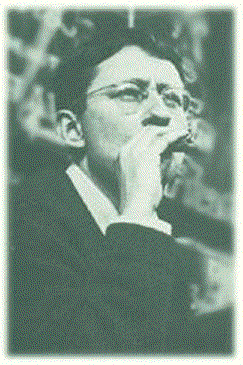
Chapter 1 of The Society of the Spectacle by Guy Debord of the Situationist International
Debord's critique is clearly founded in a Marxist discussion of alienation. From this perspective he describes, using a term borrowed from Schopenhauer, a Weltanschauung or put simply, a world-view which has been manifested in what he calls the spectacle. The spectacle, it seems is a shadowy image of the alienating processes of industrialized capitalist culture. Debord believes that the spectacle is the “false objectification” of the producers, I think, because the spectacle does not (as its producers falsely believe) reflect the objective individuality of their work, will and experience but rather is an image of the goals and processes of industrial capitalism.
The spectacle represents the unified voice of power consolidated in the State. This consolidation of power is not new; it is what Debord calls the “oldest specialization” (23). The spectacle demands passive acceptance obtained, says Debord, through the unidirectional mode of communicating the image (corporate or state-run television, print, radio, etc.)
As a consequence of separation and spectacular culture Debord outlines the “degradation of being into having” (or, the rise of consumerism) followed by “a generalized sliding of having into appearing” which demonstrates the increasing poverty of consumerist life and culture. I feel that models of ownership within the music industry can be taken as an exemplar: ownership of music by the consumer has eroded from the possession of a physical recording (albeit a mass-produced duplicate of a master which is but a representation of a live performance) to the possession of a digital copy of this physical object. It has further degenerated, through legal clauses and online services (take iTunes' End User License Agreement for example) to the simple appearance of having music through the licensing of limited access to the recording.
Our media culture has been changed by the rise of self-publishing via the internet and other means following the rise of cheap communication technologies. This has served as a sort of democratizing force in our media culture but, in many ways, this democratization has only served to benefit the wealthy or those who are already 'free'. However, in our user-generated media culture the principal of “that which appears is good, that which is good appears” still seems to hold sway. The lens of media can serve as a means of further separation.
This doesn't mean that all media production speaks as a conduit of the voice of the State but Debord believes that spectacular media extends far beyond “mass media”. Although he is critical he doesn't eliminate the possibility of subversive media or revolutionary thought and action.
No comments:
Post a Comment